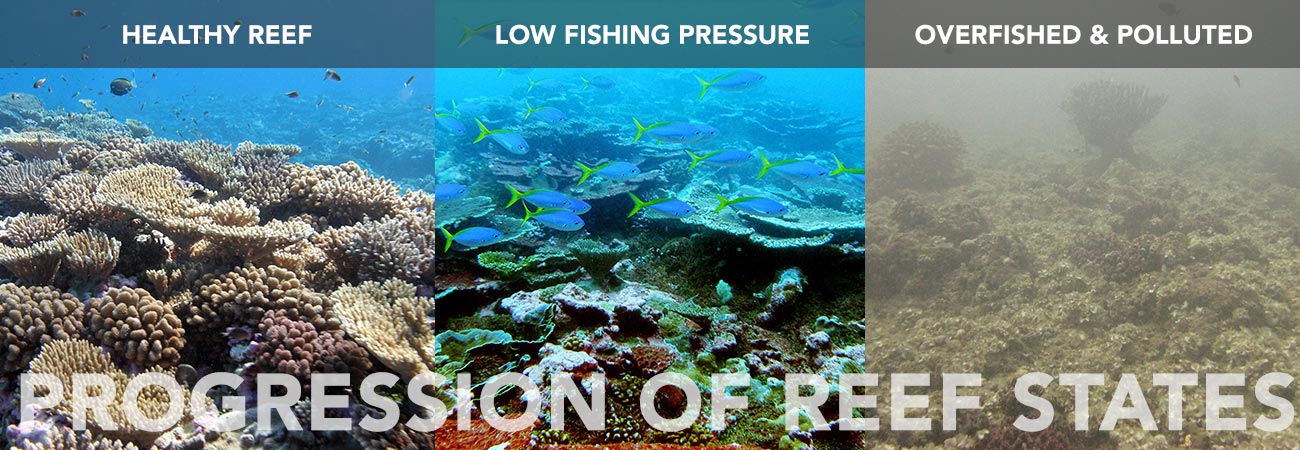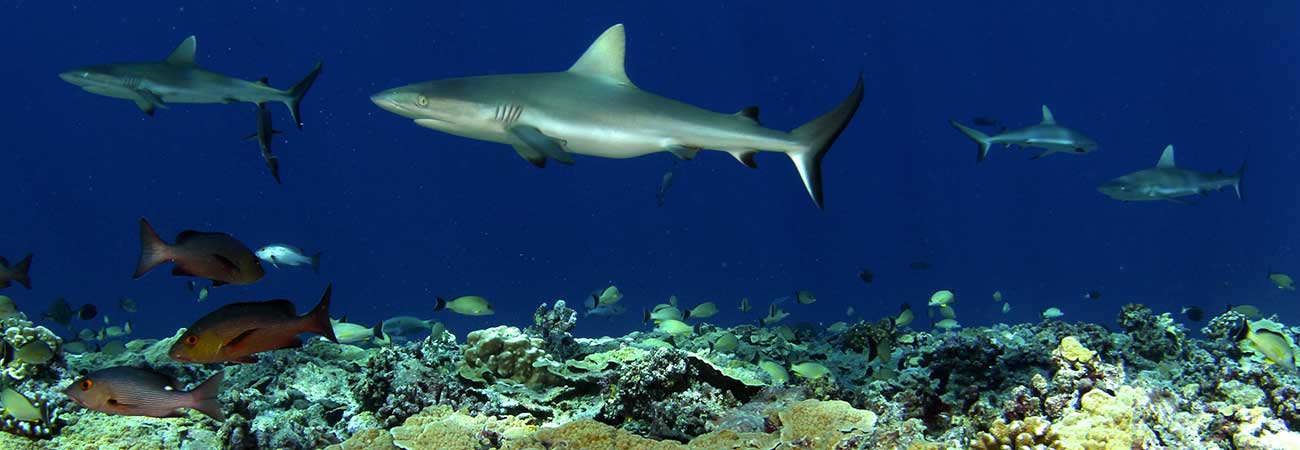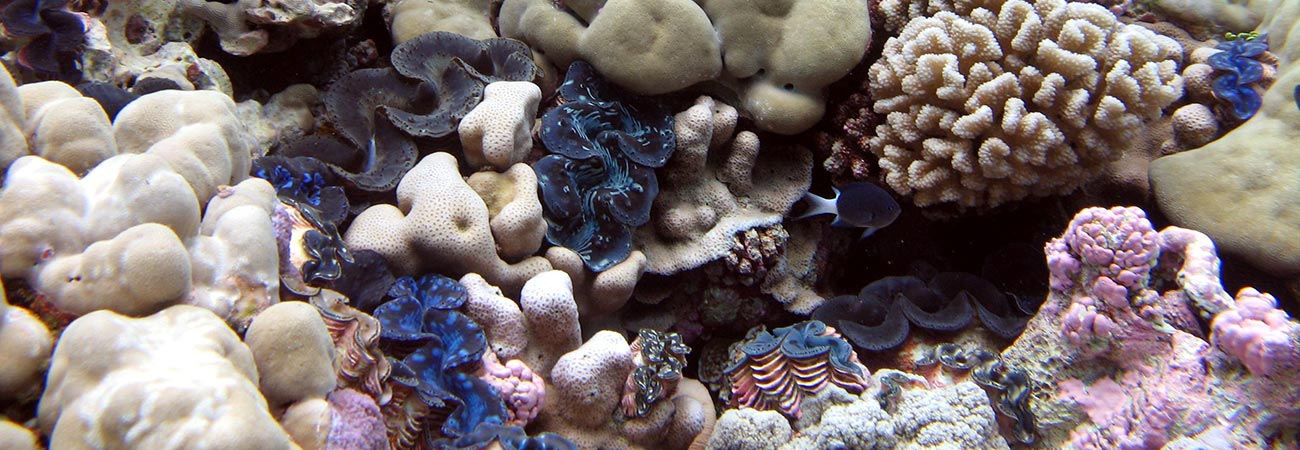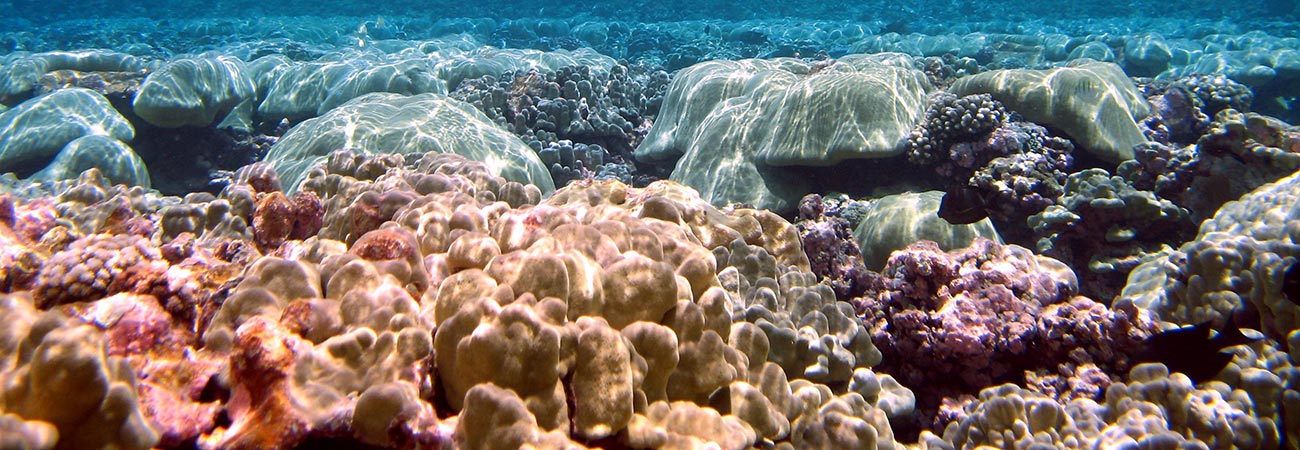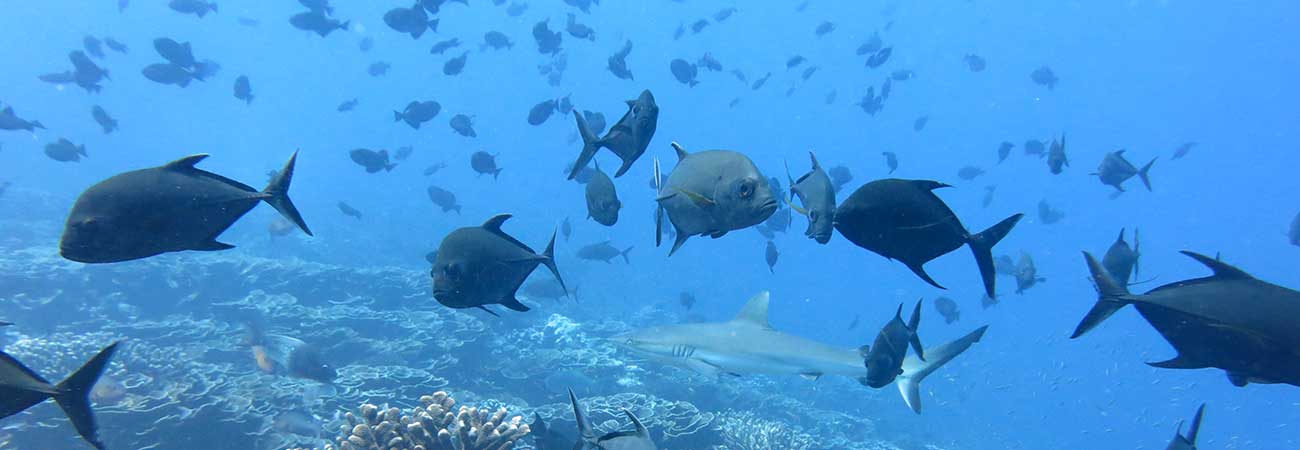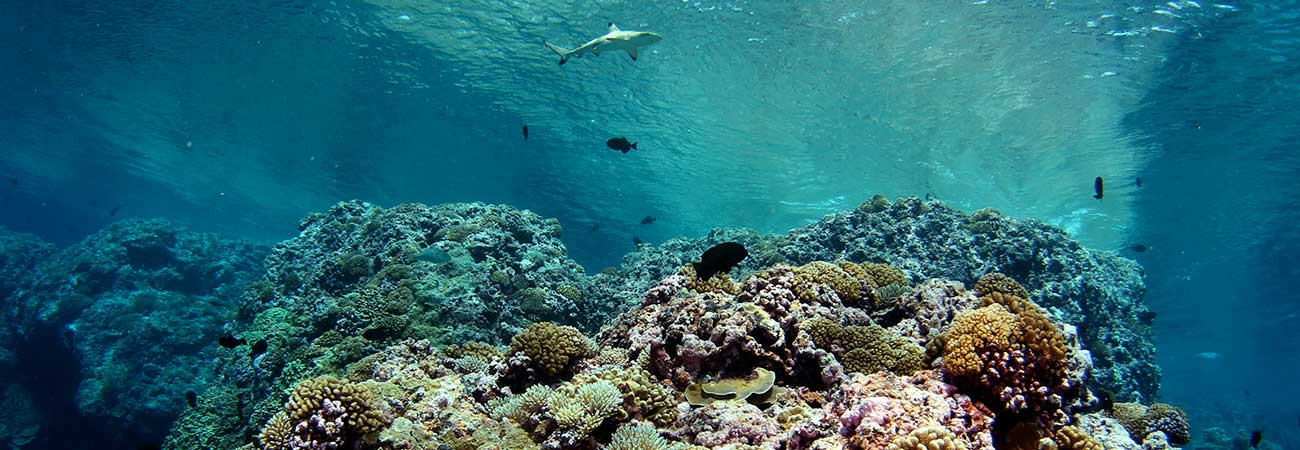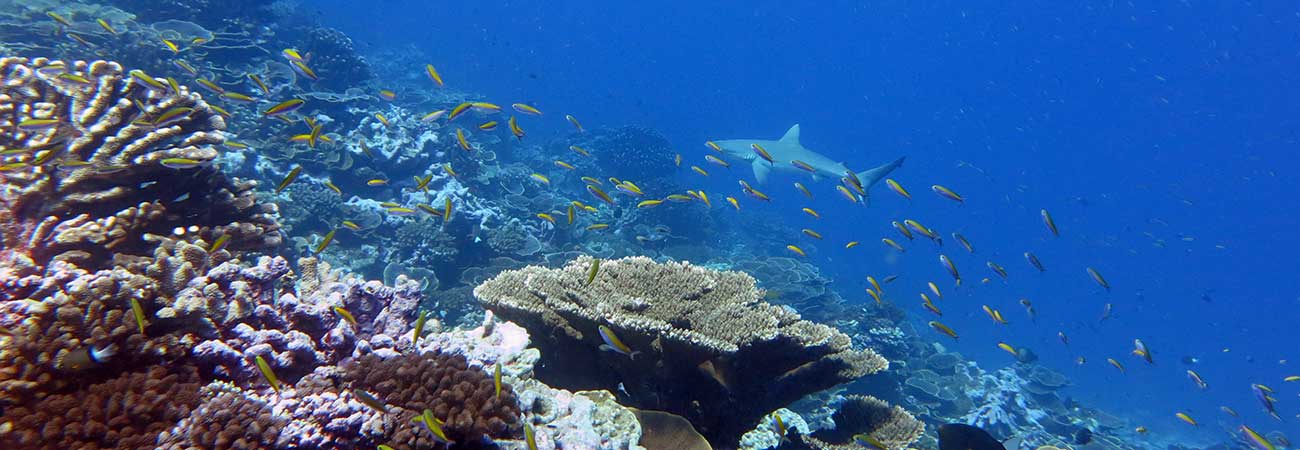Project Overview
Sharks and other apex predators are essential to coral reefs because they serve as large, long-lived energy sinks and ecosystem stabilizers. Their constant consumption of prey continually moves energy up the food web, thus the removal of these sinks releases this energy back down the food web and frees microbes from energy starvation (by "microbe" we are referring to the complete microbial food web, including the phage and other viruses, bacteria, archaea, protists, fungi, etc). On coral reefs lacking top predators, the heavily-fed microbial communities kill corals through direct and indirect mechanisms and initiate an ecosystem phase shift from corals to algae in a process called DDAM (short for DOC, i.e. energy in the form of dissolved organic carbon released by benthic photosynthesizers, Disease, Algae and Microbes).
The goal of the Phage-to-Shark Pew project is to use the Metabolic Theory of Ecology (MTE) to quantify how removing sharks (or any other component of the food web) influences the other parts of a coral reef ecosystem. We have created the Reef Energetics Tool to visually explore the links between the reef's smallest predators, the phage, and top apex predators including sharks, and to demonstrate how this influences coral health.
Reef Explorer Tool
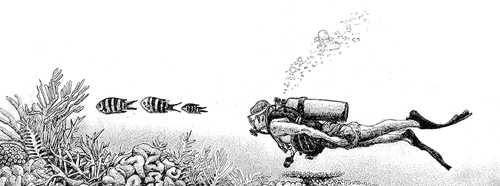
Sharks are biological sinks of organic carbon that keep microbes from overtaking the reef. Phages are bacterial predators that also control microbial biomass preventing coral death. Use the Reef Explorer tool to manipulate coral reef energetics and watch the reef flourishing or dying.

